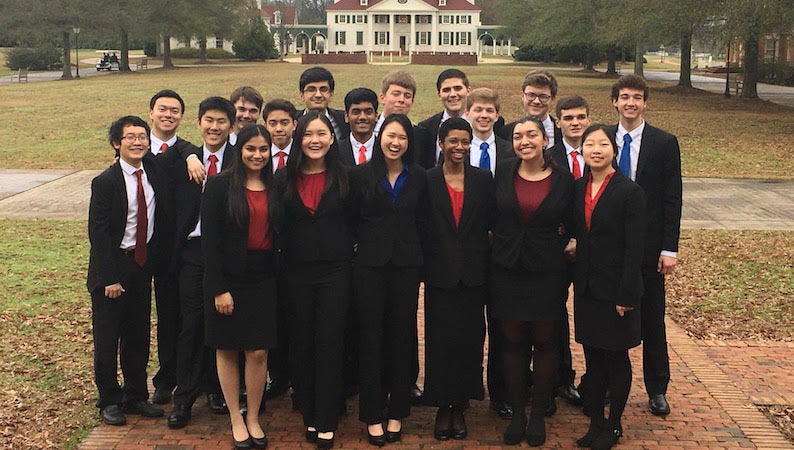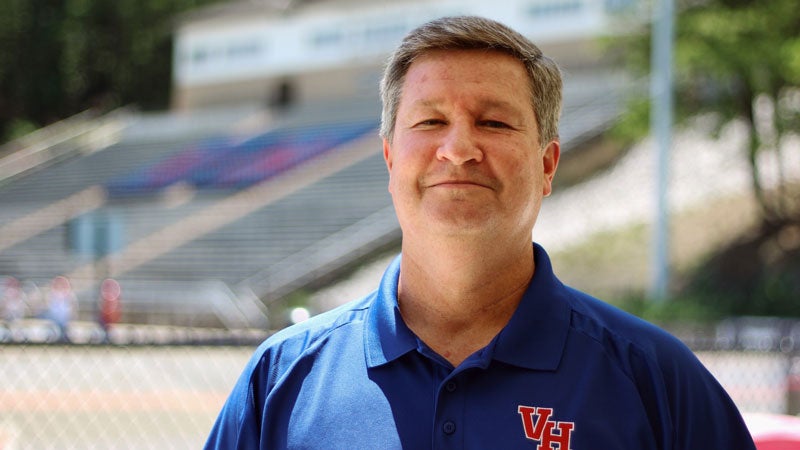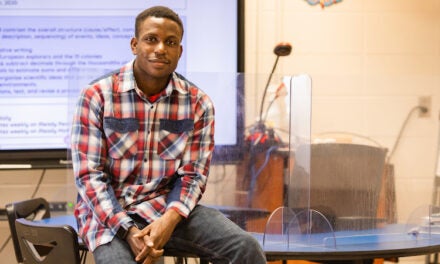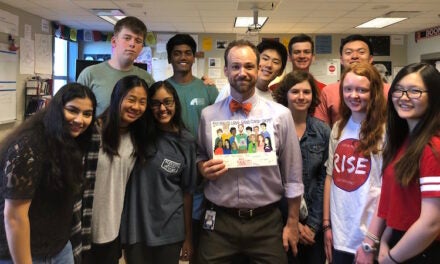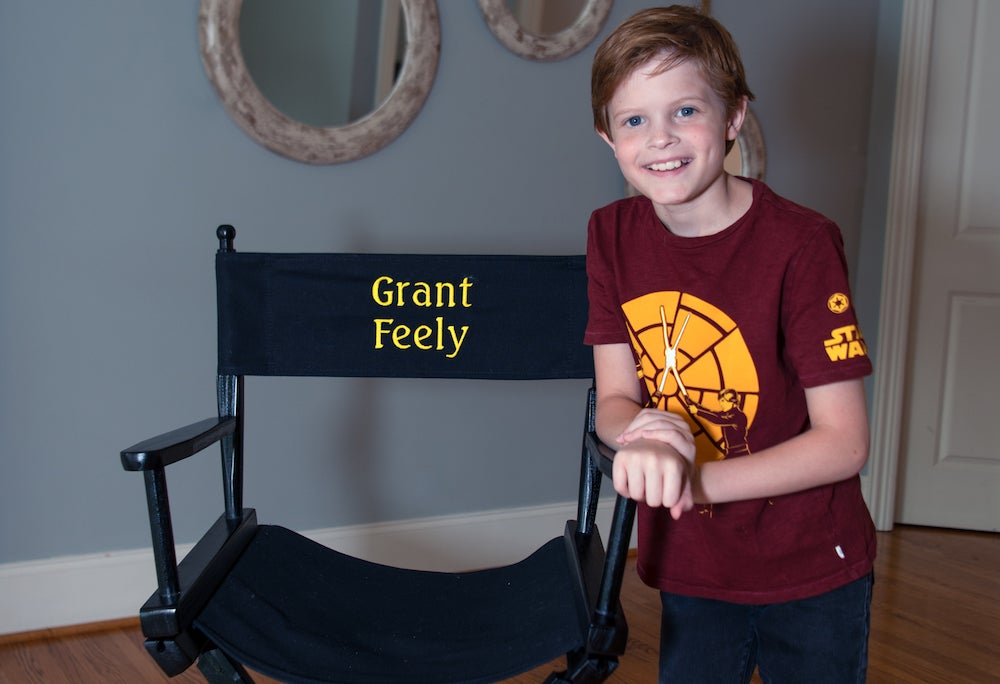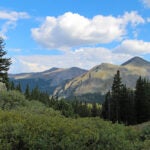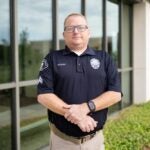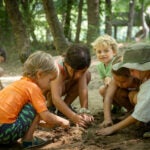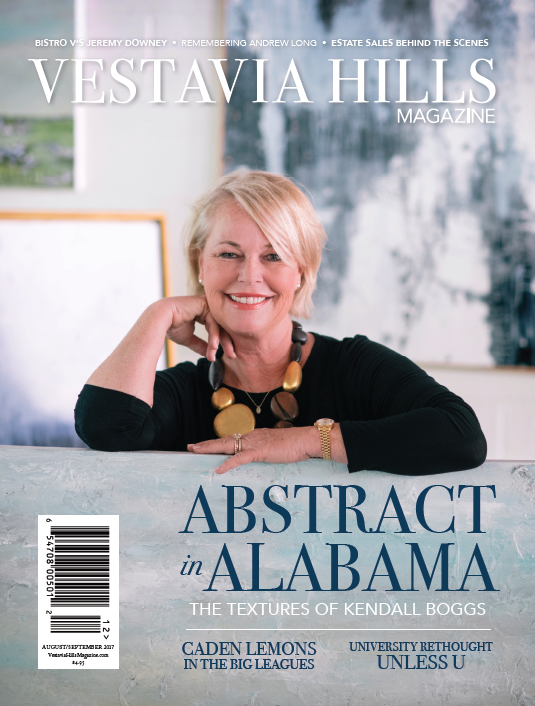Talk to Vestavia Hills High School seniors on the We the People team about the Supreme Court cases they are studying, on top of their three -month accelerated course in AP U.S. Government, and you’ll quickly question if you are talking to high school students or law school students—and there’s no doubt there are a good number of future law students in the room. To learn more about what it looks like to be on the team, we chatted with team members Robby Turner, Ram Prattipati, Ben Reynolds, Safa Khan and Ford Balogh as they were coming off of a state championship—the team’s 16th straight—and preparing for the national competition of simulated congressional hearings in Washington, D.C. in late April.
First of all, can you explain what exactly We the People is?
Ben: We the People is a study of American history through the lens of Constitutional law. All of us represent different units that focus on a different aspect of American law and society: the framing of the Constitution, its philosophical origins, how the government is affected today by the Constitution, the Bill of Rights and 21st century implications. It’s the tapestry of America framed through the Constitution and how those 7,000 words have framed these 200 years of history.
What does your preparation for competitions look like?
Robby: It tends to be intense. Each of us has memorized 50-60 court cases that are the basis of our knowledge, and we have done extensive background reading into related areas. For example, I looked deeply into amendments to the Israeli constitution.
Ram: Right before competition we tend to not have a social life. I was prepping every day, and I met with my unit members every day, going over cases.
What do you do in the competition itself?
Ben: Each unit will give four-minute opening statements we will present verbally to frame the questions they provide us. For nationals we will have 11 minutes of open follow-up questions we are preparing for with practice sessions. There’s a lot of memorization but also pulling eclectic sources of background knowledge to answer questions. They judge on presentation, constitutional application, knowledge and passion.
How has being a part of this changed the way you think?
Ram: It has nuanced my political views. There were so many Supreme Court decision I didn’t know before, and I feel like my opinion has more weight than it did before.
Ford: It’s so important to think for yourself, and our teachers Ms. Maddox and Ms. Schaefer have done a wonderful job teaching us how to think. They want us to develop opinions on our own even if we disagree with each other or them because they know how important that will be later in our lives.
Ben: It’s important to realize history doesn’t happen in vacuum. With this research we are contextualizing all we learned in AP U.S. History.
Safa: Simply put We the People is taking history and making it click.
Robby: It teaches you to value your opinion enough to back it up and to express it beautifully and intelligently in a way that can both convince people and stimulate them to form their own opinion.
How has We the People influenced what you want to do in the future?
Ben: Being up there and presenting gives me an adrenaline rush, and I think I want to teach. It hasn’t hurt that I have been hanging out with two amazing teachers, and I want to do the same thing, to influence young people to see the world in a different, more well rounded way.
Ford: I have always known I wanted to work in the legal field, and now I have seen what that would be like and that I want to be a federal judge at some point.
Robby: I want to teach and this course shows one of the best ways to do it. With Socratic questioning, you ask someone a question in order to develop their mind enough to where they can find the answer for themselves.

